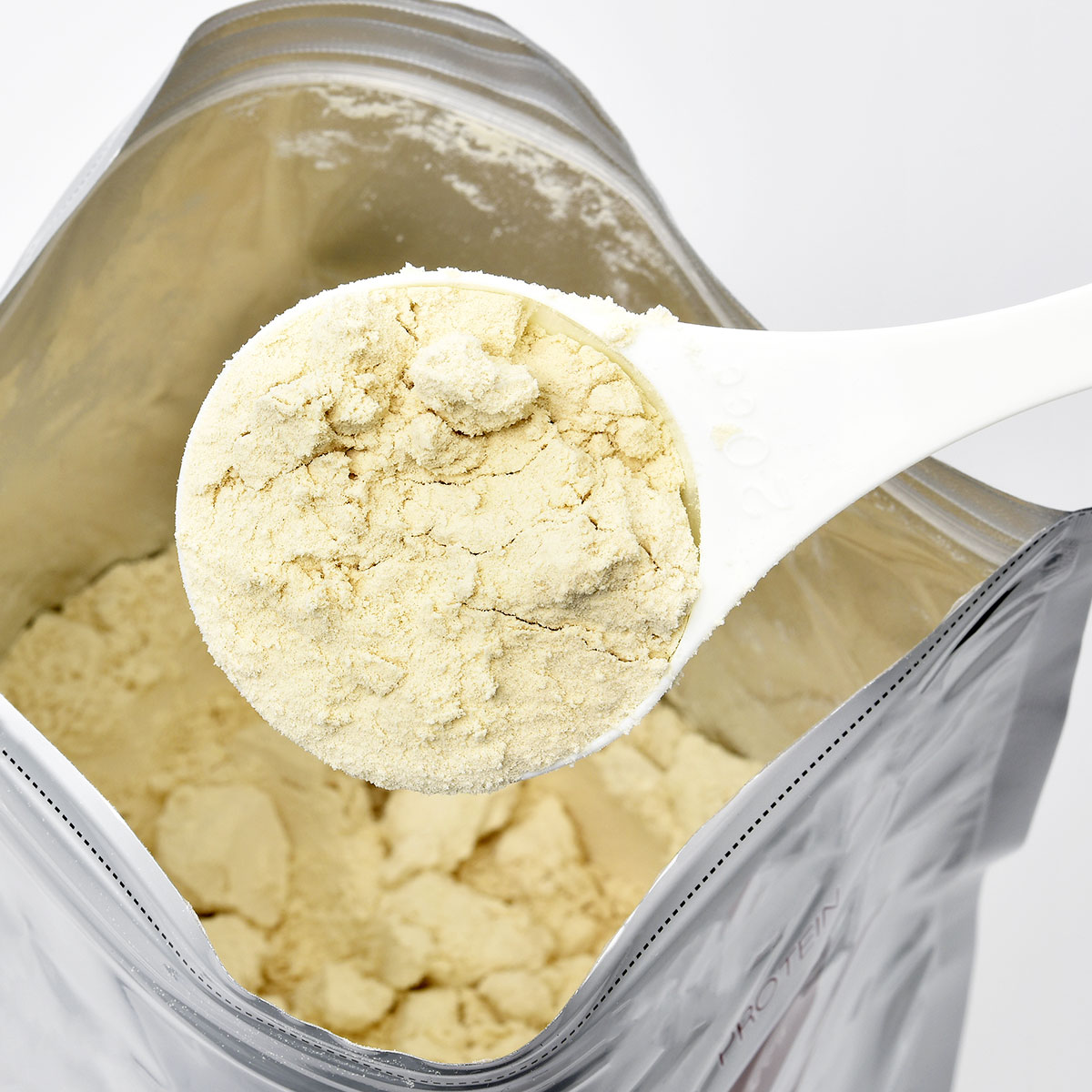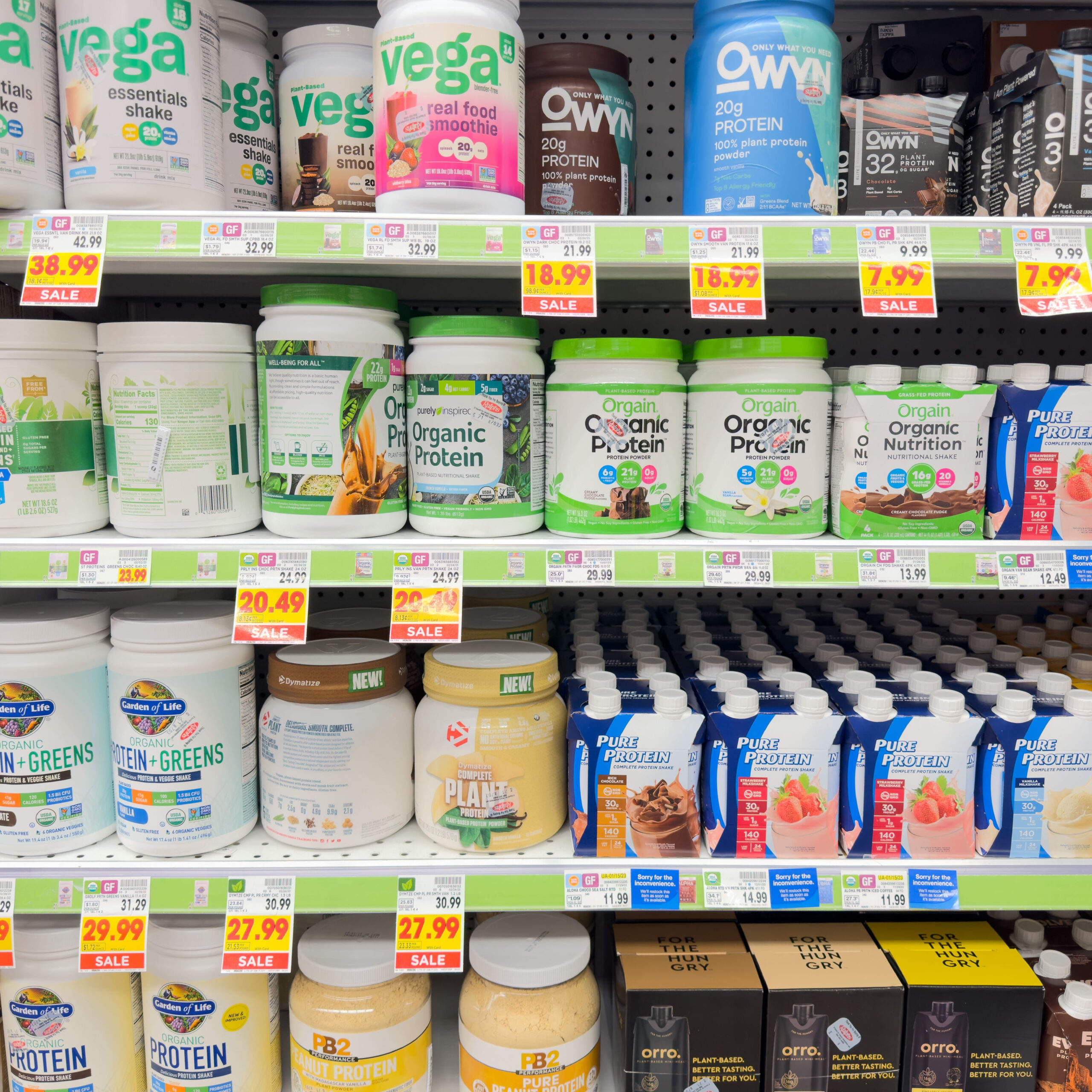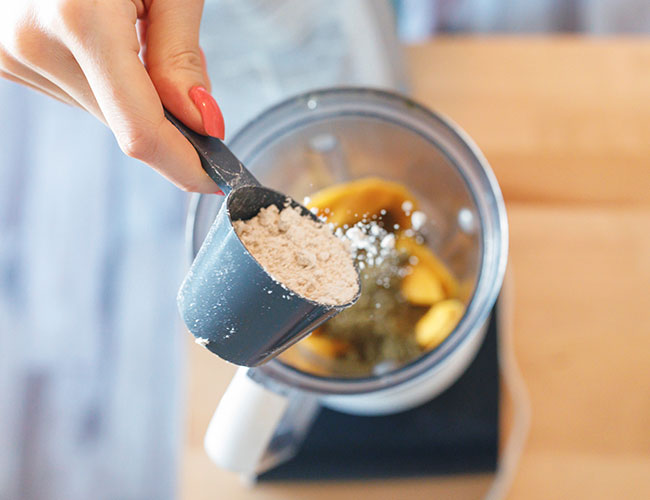This story has been updated since it was originally posted on 10/16/23 to include more expert insights
If your health goals include building muscle, you probably already know all about the importance of protein. Getting enough protein in your diet is always essential, but this macronutrient plays an especially vital role when it comes to building muscle. Fortunately, there are many ways to get it into your diet in a healthy way, including regularly adding lean meat to your plate. You can even opt for protein powder, which is commonly used to make protein shakes and sometimes added to foods like pancakes. However, it is important to be aware of the risks involved. As it turns out, consuming too much protein powder can be harmful to your health.
To find out some of the downsides of protein powder, we spoke to Dana Ellis Hunnes, registered dietitian and author of Recipe for survival, and Catherine Gervacio, registered dietitian and food writer for Living.Fit. They told us that this could lead to kidney damage, digestive problems and more. Read on to find out all their expert knowledge.

The 125 best new beauty launches of 2023

Shutterstock
Disadvantages of protein supplements
While protein supplements like protein powder are usually good in moderation, they can harm your body if you’re not careful. This is largely due to the fact that supplements can put you over the recommended daily amount of protein, which Hunnes notes is about 0.36 grams of protein per kilogram of body weight: “This means that the average woman of A healthy 140-pound person only needs 51 grams of protein per day.” Considering some protein powders pack as little as 30 grams per serving, it’s important to be aware of what too much protein can do to your body. .

Shutterstock
Protein supplements and kidney damage
But isn’t more protein good? Not always. According to Hunnes, giving your body more protein than it needs can have negative effects. “Excess protein (calories) turns into fat,” she explains. Of course, on the one hand, this is not ideal for anyone trying to lose weight. But it can also be a nightmare for your digestive system and your kidneys.
“Too much protein can be tough on the kidneys that have to filter it all out, and it can be tough on the digestive tract, depending on the type of protein,” Hunnes tells us.
Gervacio agrees, noting that consuming too much protein powder “can stress the kidneys, which have to work harder to clear metabolites from protein digestion.” She says people with existing kidney problems are especially at risk in this scenario.
“High levels of protein intake can worsen kidney damage in individuals with existing kidney problems by increasing the workload of the kidneys,” says nutritionist Krutika Nanavati.

Shutterstock
Protein supplements and digestive problems
Depending on the type of protein powder you choose, you could also be ruining your gut health; certain varieties, such as casein, which is made from cow’s milk, can cause concern especially for people whose bodies do not process dairy well.
“Some people may experience digestive upset, bloating and discomfort when consuming protein powder, especially if they are lactose intolerant and the protein is from milk,” says Gervacio. “It’s best to source a specific protein powder like pea protein, hemp, whey, etc.”

Shutterstock
Ultimately, however, the best way to get your protein will usually be directly from the food you eat. There are many great options to consider, including plant-based proteins that can do wonders for your body.
end
Overall, it’s important to be aware of the dangers of anything you’re consuming, including protein powder, so you can keep your body in great shape. Too much of a good thing can be a bad thing, so moderation is always the key.
READ MORE: 2 supplements that can lead to kidney damage, according to experts
#scary #downsides #protein #supplements #kidney #damage
Image Source : www.shefinds.com